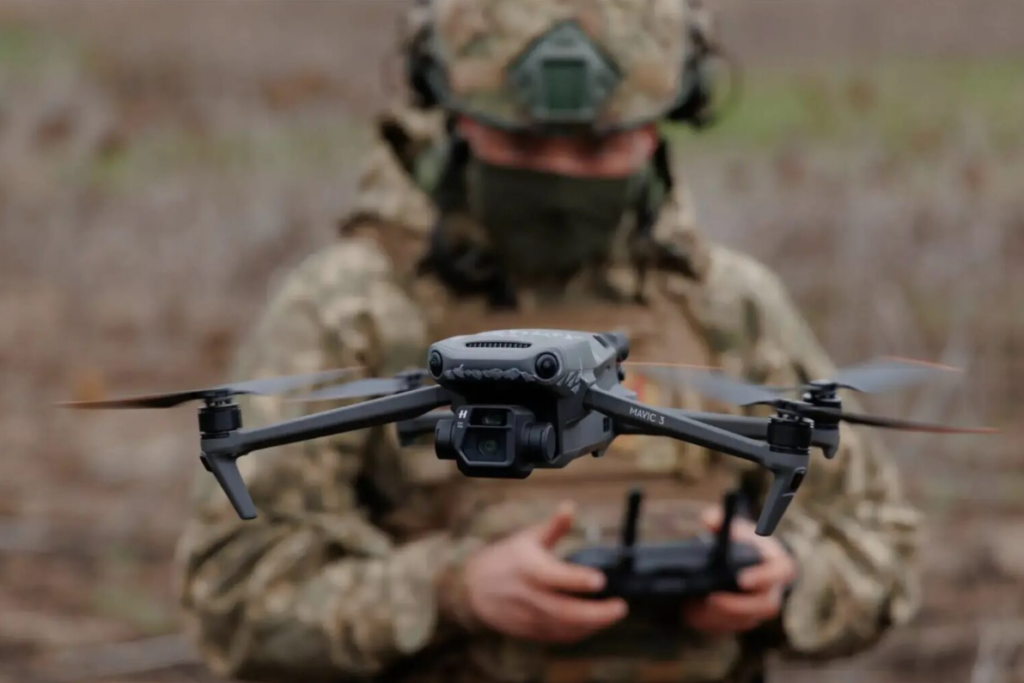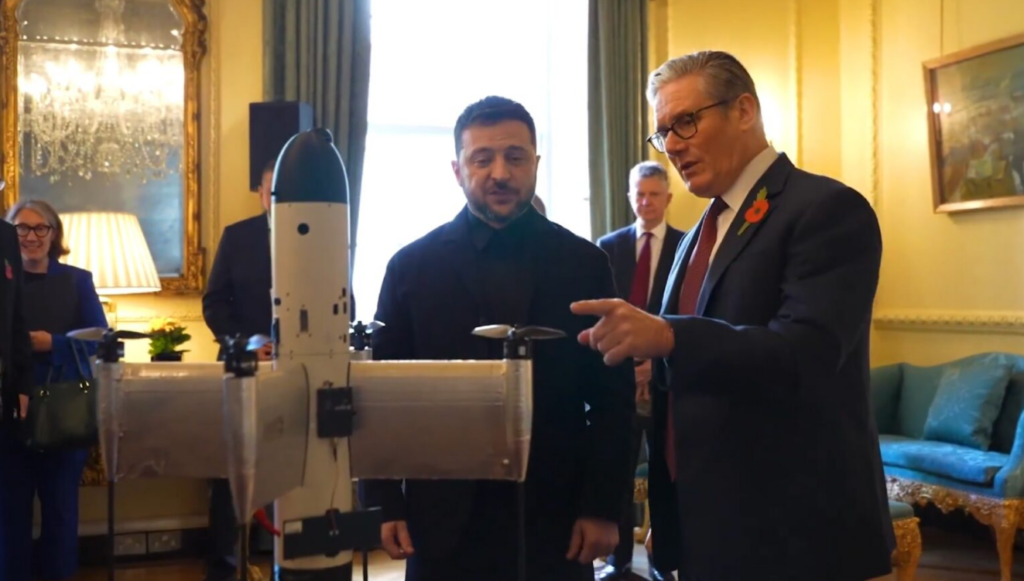Ukraine and UK to Co-Produce Octopus-100 Interceptor Drones
Ukrainian and British defense officials met in London in late October to sign a landmark agreement to co-produce the Octopus-100 interceptor drone. The two countries’ defense ministries agreed to manufacture the Ukrainian-designed Octopus-100 in the UK under this pact. The treaty makes Octopus-100 the first Ukrainian combat drone to be serially built on NATO soil. The deal is meant to speed up deliveries and strengthen Ukraine’s air defenses by moving from one-off arms transfers to sustained joint production.
The Octopus-100 is an autonomous interceptor-class UAV built to hunt down hostile small drones. It carries sensors and countermeasures to detect, track and destroy enemy unmanned aircraft in flight. The system was specifically designed to counter Iranian-made “Shahed” kamikaze attack drones that Russia has used against Ukraine. Octopus-100’s design emphasizes simplicity and modularity so that it can be mass-produced cheaply and quickly. Full technical specifications have not been released but the interceptor’s development and recent demonstrations (such as when Ukraine’s leadership showed it to UK officials) underscore its role as a key tool in Ukraine’s layered air-defense scheme.

Ukraine will transfer the technical date package for Octopus-100 to Britain under the co-production agreement and UK companies will begin assembling the drones. The initial pilot batch will consist of approximately 1,000 units. Ukraine’s security chief Rustem Umerov said, “We will experimentally produce a thousand, and then scale it to the number that will be needed”. Britain’s Defence Secretary John Healey has indicated production could start “within weeks” of the signing. Private Ukrainian drone maker Ukrspecsystems is already investing in a £200+ million factory in the UK to support high-rate production.
This UK–Ukraine drone deal carries major importance for Ukraine’s war effort. Producing Octopus-100 on NATO soil helps protect production from Russian attacks, diversifies supply chains, and ensures standardization under allied oversight. Spreading manufacturing between Ukraine and Britain makes Ukraine’s air defense more resilient: if a battlefield factory is hit, British plants can still churn out replacements. Mass-producing thousands of low-cost interceptor drones also aligns with modern warfare needs as the ability to rapidly replenish defense systems against swarms of enemy drones is critical.
The co-production pact deepens the UK–Ukraine security partnership, both countries point out that moving from donations to joint manufacture signals a shift toward long-term industrial collaboration. Putting thousands more Octopus-100 drones into service should significantly bolster Ukraine’s ability to repel hostile UAVs and protect its forces and infrastructure against drone attacks.

